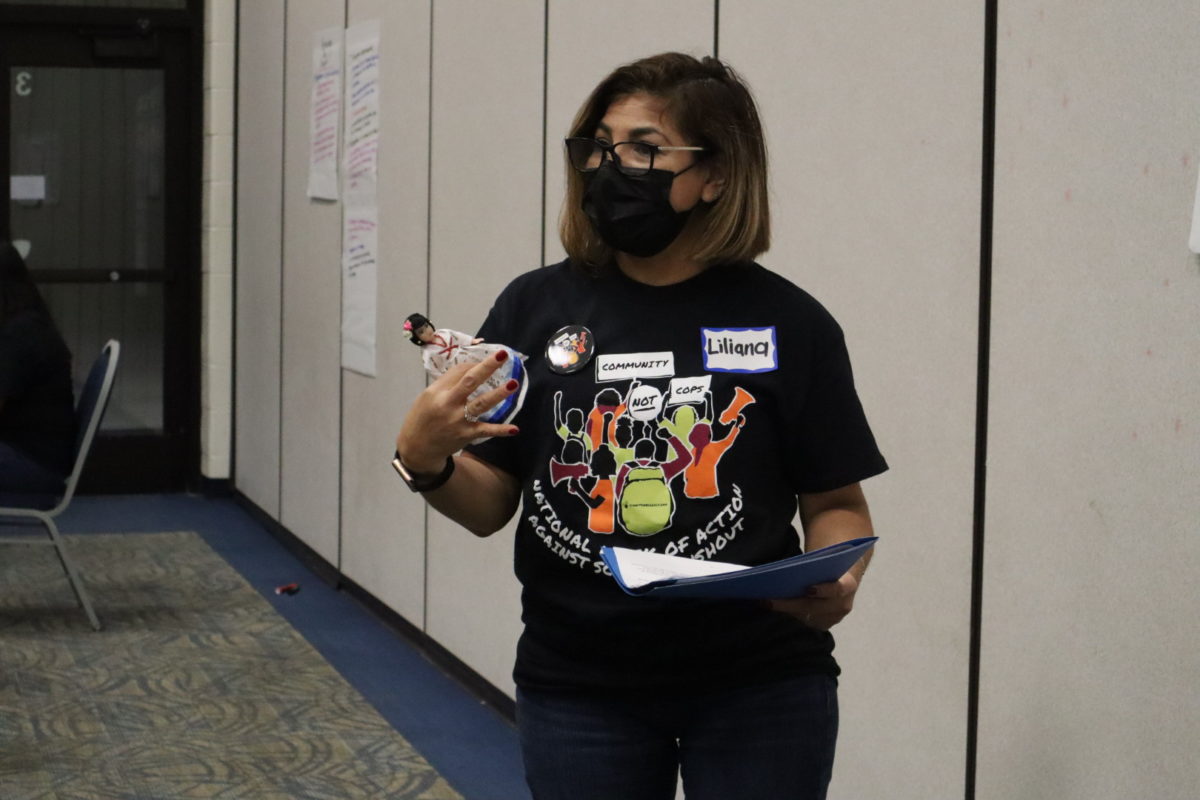Elementary Justice Campaign
Stopping the school-to-prison pipeline

POWER-PAC IL parents launched the first citywide campaign in 2004 out of their own experiences with their children in Chicago’s low-income African American and Latino neighborhoods. Children were suspended in schools at an alarming rate; they attended schools where prison-like atmospheres prevailed (at the time, 82% of the students didn’t have recess, and many were not even allowed to talk during lunch). Parents were told their children starting kindergarten were already trailing their white and middle-class counterparts.
The goal of the Elementary Justice Campaign is to break the cycle of criminalization of low-income youth of color by eliminating unnecessarily punitive discipline policies and practices in schools.
POWER-PAC IL is The COFI Way in action.
2024: The Chicago Board of Education unanimously votes to expand the Whole School Safety resolution to all schools in the district, following four years of POWER-PAC IL’s work on the Whole School Safety Steering Committee and decades of organizing around alternative approaches to student supports and dismantling the school-to-prison pipeline. This decision effectively ends the School Resource Officer (SRO) program in Chicago Public Schools (CPS) and creates a district-wide policy on safety.
2021-2022: COFI/POWER-PAC IL is one of five community organizations selected to partner with CPS to create a more holistic approach to school safety. 82% of Chicago’s police in schools are eliminated and $3.8 million in the CPS budget is reinvested toward alternative supports like Restorative Justice coordinators and social-emotional learning programs.
2020: POWER-PAC IL parents win a victory when CPS and Chicago Police Department (CPD) finalize an agreement laying out new rules for police in Chicago Schools.
2015: POWER-PAC IL wins Senate Bill 100, legislation that marks an important step towards breaking the school-to-prison pipeline in Illinois. The bill eliminates fines and fees for student misconduct, allows students to make up work during a suspension, and provides academic counseling and mental health support services for students suspended 4+ days.
2012-2014: POWER-PAC IL is appointed to the Council of State Government Justice Center’s Discipline Consensus project, informing federal guidelines on school discipline released in 2014 by the U.S. Departments of Education and Justice to reduce racial disparities in school discipline and encourage the use of positive discipline approaches.
2006: The first POWER-PAC IL led changes are made to the CPS Code of Conduct and the first parent-led Peace Center is opened in a public elementary school. In subsequent years, many further Code of Conduct changes are made, including replacing “zero tolerance” with “restorative justice,” reducing suspensions and expulsions, and banning group punishment practices.
2004-2005: Parent leaders first present their recommendations to the Chicago Public School (CPS) Board of Education in 2004, resulting in CPS committing to support parents and fund parent-led research.

Recommendations
- End out-of-school suspensions, except in the case of serious threats to student safety.
- Reinstate recess and breaks, including more physical education in school day.
- Implement violence prevention programs and programs based on the philosophy of restorative justice.
- Provide training on discipline policies to parents, school staff, and administrators and provide information on school discipline policies in a more parent- friendly format.
- Analyze and address racial disparities in school discipline by requiring school-by-school data release and involving parents in oversight and accountability in creating and reviewing discipline policies.
Publications and recent news
- “Chicago Public School Board hears proposal for safety plan without school resource officers” – ABC 7 Chicago (May 2024)
- “Board of Education moves to pull school police officers” – Chicago Sun-Times (February 2024)
- “Chicago schools started removing police two years ago. What’s happened since?” – Chalkbeat (August 2022)
- “‘Dads on Duty’ Prove Parent-Led Initiatives are Effective Alternatives to Police in Schools” – Parents (November 2021)
- “Do Police Officers in CPS High Schools Make Students Safer?” – WTTW (September 2021)
- “Race in Chicago: Wide Educational Divide Continues in the City” – NBC5 Chicago (July 2021)
- “Pull Chicago police from CPS schools and use that $33 million on mental health services instead, activists and elected leaders say” – Chicago Tribune (June 2020)
- COFI’s Guide to Parent Engagement in SB100 (2016)
- The School Discipline Consensus Report – COFI Peace Center Feature (2014)
- POWER-PAC Report: Parent-to-Parent Guide to Restorative Justice (en Español) (2010)
- Stopping the Downward Spiral for Our Children – Redirecting the School-to-Prison Pipeline (2006)
“Black and Brown kids … have such a negative thought towards police. If you want to have a different outlook on the police department, a different outlook on students – CPS (Chicago Public Schools) and CPD (Chicago Police Department) have to learn how to build relationships in communities.”